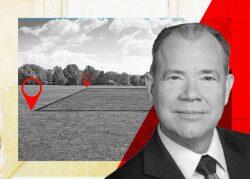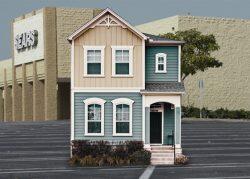A proposed measure to tax vacant apartments in San Francisco may have enough signatures to qualify for the November ballot.
The measure, spearheaded by District 5 Supervisor Dean Preston and run as a citizenship initiative, garnered 13,734 signatures, the San Francisco Business Times reported. It needs 8,979 signatures to be certified by the Department of Elections.
If passed by San Francisco voters, the Empty Homes Tax would affect owners of vacant residential units in buildings with three or more apartments, if they’ve been vacant for more than 182 days in a year. It’s expected to raise $38 million annually for the city.
The tax would range from $2,500 to $5,000, depending on the size of the home. It would increase over time, adjusting for inflation. In later years, the tax rate would increase to a maximum of $20,000 for homes larger than 2,000 square feet if the same owner kept that unit vacant for two consecutive years.
It would not apply to primary residences, leased properties or homes intended for tourists and travelers such as corporate or short-term rentals. Nonprofit and government-owned units and single-room occupancy hotels without kitchens are also exempt, as are units in a nursing home or residential care facility.
The measure would require a simple majority of votes to pass. If successful, the tax would take effect in January 2024.
Organizers behind the ballot measure campaign said the signature gathering got a boost from a city report early this year that found one in 10 homes — or 40,458 units — don’t have a full-time resident.
The highest number of vacant units were in SoMa, Downtown and the Mission District, neighborhoods where most of the city’s recent apartments have been built, according to the Budget and Legislative Analyst report.
Cities such as Vancouver, Canada, have seen an impact from taxing prolonged vacancies as a way to nudge owners to rent them out or move in, according to the Business Times.
Oakland implemented such a tax on residential vacancies in 2018, and Berkeley is now considering such a measure.
Randy Shaw of San Francisco’s Tenderloin Housing Clinic earlier this year said a vacancy tax “makes no sense” – that it creates “this false sense that we don’t need to build more housing.”
The impact of such a tax elsewhere partially supports Shaw’s claims.
In Vancouver, where the tax generated $21 million in 2019, vacancy rates have since leveled off as rents rise. Oakland collected $7 million in tax revenue in 2020, but rents are surging there too.
[San Francisco Business Times] – Dana Bartholomew
Read more


